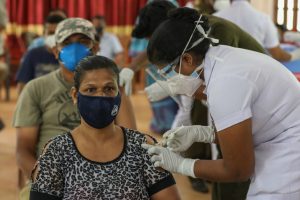Post-Vaccination Immunity : Study

In recently published a review it was found that only a few vaccines provide long-lasting protection spanning more than 20 years.
Post-vaccination immunity Process:
- In the fundamental immunological mechanism, our lymph nodes first produce the memory B cells that confer long-term protection against a disease.
- These cells ‘memorise’ the antigen the vaccine has delivered. When a foreign object like a virus enters the body bearing the same antigen, the B cells will trigger the production of a large number of potent antibodies to destroy it, removing the infection.
- These memory B cells require T cell support, and only vaccines that stimulate T cells can also induce the body to produce them. Further, not all vaccines – including the polysaccharide typhoid and the pneumococcal vaccines – prompt the body to make B cells.
- In some cases, frequent boosters are required to enhance the duration of immunity the cells confer, ranging from six months to a few years.
- Also, vaccines trigger the production of memory B cells to different degrees, plus having memory B cells alone does not guarantee protection.
- Another essential immune cell, called long-lasting plasma cell (LLPC), migrates from the lymph node to the bone marrow and may endure for decades.
- LLPCs are the main immunological factor in vaccine-induced immunity. Every vaccine tries to create long-lasting plasma cells for lifelong protection.
- The measles and rubella vaccines produce these cells in the bone marrow. However, some potent vaccines, such as the mRNA COVID-19 shots, fail to activate these cells in the bone marrow.
- To provide long-term protection, then, vaccines must generate memory B cells and LLPCs in the bone marrow.
- Different vaccines differ in their ability to produce these cells, explaining the disparity in their durabilities.




